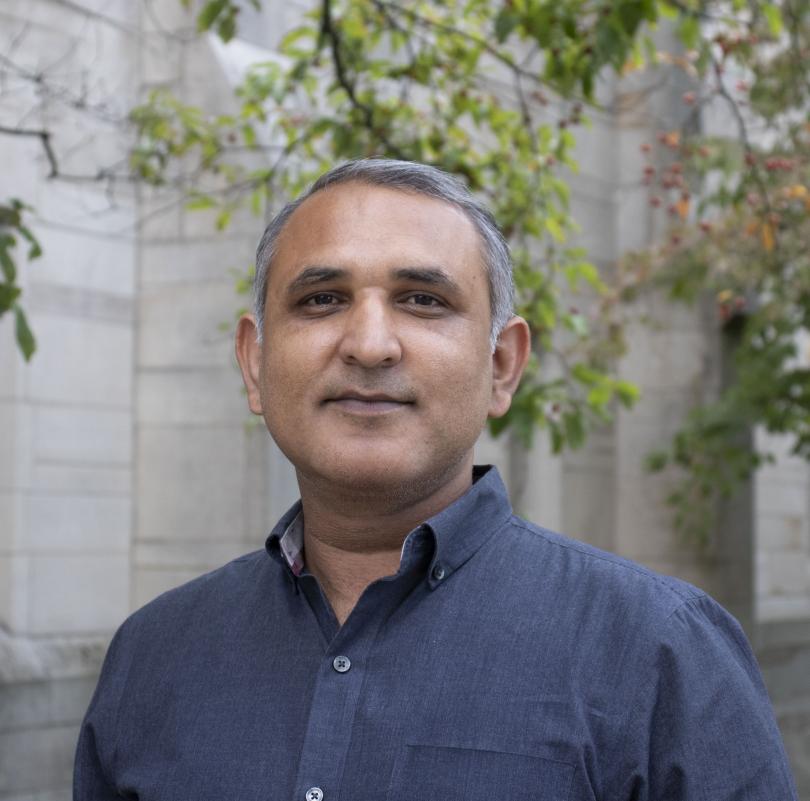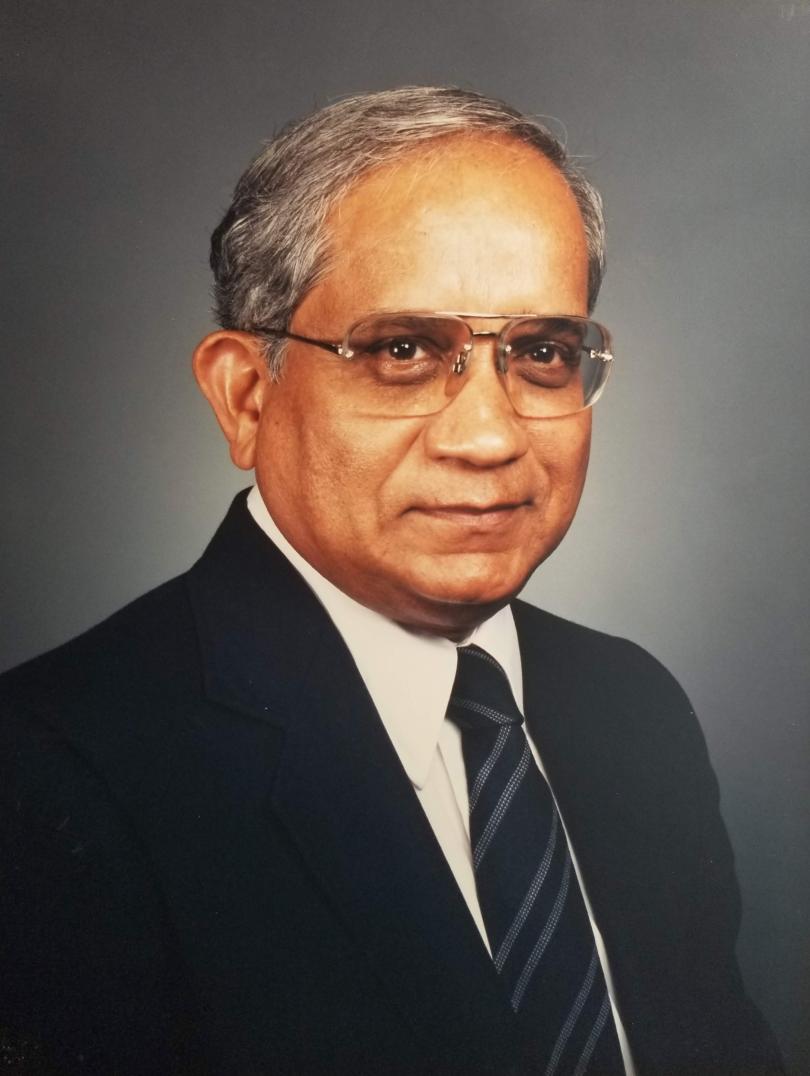The recipient of the Dr. Pradyumna P. Karan Memorial Lecture Series in Geography is selected by the graduate students in the Department of Geography at the University of Kentucky to honor the doctoral program that Professor P.P. Karan launched in 1968. Supported by an initial donation by the family of Professor Karan, this memorial lecture series is meant to serve the graduate program and the department in perpetuity.

2026 Karan Graduate Lecturer
Dr. Abdul Aijaz, Indiana University
First Dr. Pradyumna P. Karan Memorial Lecture
Dr Abdul Aijaz, Indiana University, has been selected to give the first Karan Graduate Lecture on Friday, Feb. 13. Aijaz is a human geographer whose research brings together political ecology, environmental humanities and literary geographies to examine the entanglements of narrative, infrastructure and ecological crisis. He explores how global discourses of climate change are lived, contested and reimagined in the canal colonies of Punjab, Pakistan, an area shaped by the world’s largest contiguous irrigation system and a legacy of colonial hydrological engineering.
Through a methodologically eclectic approach that combines archival research, ethnographic fieldwork and literary analysis, Aijaz highlights linkages between the world and the word, tracing commonalities between South Asian literary formations and the material histories of irrigation. His research charts the intertwined aesthetics and politics of modernization in the Indus Basin, challenging the binary of fact and fiction to illuminate the narrative foundations of environmental knowledge and worldmaking.
At a moment of intensifying global environmental uncertainty, Aijaz’s research offers critical insights into how new forms of survival and imagination emerge in response to ecological precarity, particularly in the Global South. His scholarship contributes to ongoing conversations around water justice, sustainability and the cultural and political dimensions of climate change. His research has been supported by the Fulbright Program, Social Science Research Council, the American Institute of Pakistan Studies and the Higher Education Commission of Pakistan. His research work has appeared in Environment and Planning E: Nature and Space, Literary Geographies, Water and Agitate!
Schedule of Events, Friday Feb. 13:
- A Friday afternoon address by Dr Abdul Aijaz, Indiana University, at 3 p.m. in Gatton B&E 191. Read more about the lecture here.
- A reception at the Commonwealth House of the Gaines Center for the Humanities immediately following the lecture.
Please contact the Geography Department's office for more information about joining us for the Karan Graduate Lecture.

About P.P. Karan
Dr Karan was one of the most influential South Asian geographers in the United States. He was born on Feb. 9, 1930, in Gaya, India, a few miles from the site where Buddha attained enlightenment over 2,500 years ago, and died July 19, 2018, in Lexington. From 1956, his academic base was in the Department of Geography at the University of Kentucky, where he was professor between 1964 and 2017 and held a distinguished University Research Professor position from 2010 to 2017, during his last few years. He also served as department chair from 1967 to 1975, during which he oversaw the establishment of a doctoral program and the expansion of the department’s faculty during the mid-1970s. Following this time, he remained active as professor emeritus and maintained contact with national and international research communities. Professor Karan was an internationally recognized scholar of environmental management and sustainable development in the Himalayas. The focus of his research was on the applications of geographic theories to social and economic problems in the non-western world. Professor Karan was also interested in the disciplinary history of geography in the 20th century.
Dr Karan is remembered as a man of strong personality, wide sympathies and unselfish enthusiasm by family, friends, students and research collaborators alike. He was a loving and devoted husband to his wife Hazel, and a great uncle to his niece and nephews both in India and the United States. His influence and inspiration have not only been shared through the written word but perhaps to an even greater extent through personal conversations, lectures, in meetings with visiting researchers and at seminars and conferences. His students and colleagues can testify to the intellectual radiance that always surrounded him.
Past Speakers
- Abdul Aijaz, Visiting Assistant Professor, Indiana University [2026]
